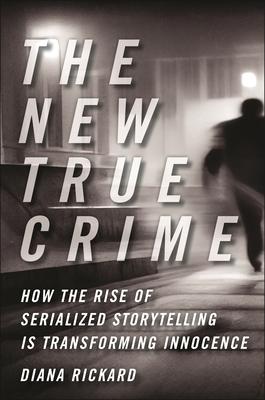How serialized crime shows became an American obsession
TV shows and podcasts like Making a Murderer, Serial, and Atlanta Monster have taken the cultural zeitgeist by storm, and contributed to the release of wrongly imprisoned people--such as Adnan Syed. The popularity of these long-form true crime docuseries has sparked greater attention to issues of inequality, power, social class, and structural racism. More and more, the American public is asking, Who is and is not deserving of punishment, and who is and is not protected by the law? In The New True Crime, Diana Rickard argues that these new true crime series deserve our attention for what they reveal about our societal understanding of crime and punishment, and for the new light they shine on the inequalities of the criminal justice system. Questioning the finality of verdicts, framing facts as in the eye of the beholder--these new series unmoor our faith in what is knowable, even as, Rickard critically notes, they often blur the lines between "fact" and "fiction."

The New True Crime: How the Rise of Serialized Storytelling Is Transforming Innocence
How serialized crime shows became an American obsession
TV shows and podcasts like Making a Murderer, Serial, and Atlanta Monster have taken the cultural zeitgeist by storm, and contributed to the release of wrongly imprisoned people--such as Adnan Syed. The popularity of these long-form true crime docuseries has sparked greater attention to issues of inequality, power, social class, and structural racism. More and more, the American public is asking, Who is and is not deserving of punishment, and who is and is not protected by the law? In The New True Crime, Diana Rickard argues that these new true crime series deserve our attention for what they reveal about our societal understanding of crime and punishment, and for the new light they shine on the inequalities of the criminal justice system. Questioning the finality of verdicts, framing facts as in the eye of the beholder--these new series unmoor our faith in what is knowable, even as, Rickard critically notes, they often blur the lines between "fact" and "fiction."